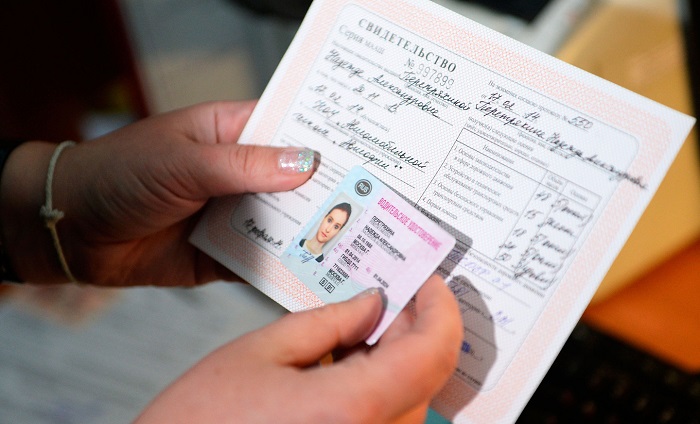- 11 September, 2019
- Foreign Policy

On September 10, a bill was introduced at the RA National Assembly according to which it shall be mutually prohibited to work as a driver in Armenia with a foreign driving license.
What the matter is
In other words, according to this bill, this ban will be effective for persons having obtained driving licenses from countries where there is a similar ban with regard to Armenian driving licenses. This issue is particularly important in the case of Russia. Many Armenian citizens in Russia work as drivers with Armenian driving licenses, and the law adopted in Russia in 2017 deprives them of that opportunity.
Why Armenian driving licenses are not accepted
Russian law applies to foreign driving licenses in general, but there is an exception for EEU member states where Russian has a state or official language status. Moreover, Armenia has been offered to grant a special status to the Russian language in exchange for a driving license privilege. Speaker of the Russian State Duma Vyacheslav Volodin addressed the Speaker of the RA National Assembly Ara Babloyan with that offer. Naturally, the offer was rejected on the grounds that, according to the RA Constitution, the state language of Armenia is Armenian.
What drivers do
Despite the legislative ban in Russia, Armenian driving license holders continue to work in Russia as drivers since there is a relevant internal agreement between Armenia and Russia. This was stated by the Ambassador Extraordinary and Plenipotentiary of Armenia to the Russian Federation Vardan Toghanyan in the National Assembly. According to the latter, such agreements are reached between the Chief of the RA Police and the Russian Minister of Internal Affairs.
How Armenia responds
According to RA Deputy Foreign Minister Shavarsh Kocharyan, the law adopted in Russia is discriminatory for Armenia and contradicts the law on the Eurasian Economic Union, according to which such restrictions shall essentially be eliminated. According to Kocharyan, Armenia and Russia are currently working on resolving the problem, but there are some difficulties.
According to Kocharyan, there are two ways of resolving the problem: multilateral and bilateral. In the case of the multilateral solution, special arrangements should be made for EEU countries to remove restrictions on national driving licenses. However, this path is difficult and time-consuming. The second option is the amendment of the Russian legislation, which will set an exception not only for the other EEU members Belarus, Kazakhstan and Kyrgyzstan but also for Armenia.
It should be noted here that the Russian law was adopted later than the EAEU agreement. That is, Russia actually violated the EAEU agreement, which resulted in discrimination against Armenia.
Judging by the fact that the problem has not been resolved for a long time, it can be concluded that Russia is not inclined to make legislative changes, making an exception for Armenian driving licenses as well. In response, Armenia raises the issue of discriminatory attitude, after which the bill on mutual ban on working as a driver with a foreign driving license is introduced. It is noteworthy that according to the Deputy Chief of the Police Hovhannes Kocharyan, the Russian side was aware of the proposed bill in advance and agreed that if there is a ban on Armenian driving licenses in Russia, then there should be a ban on Russian driving licenses in Armenia as well.
What then?
Of course, it is not a serious restriction for Russia, especially taking into consideration the circumstance that such persons are most likely Armenians. This issue is of key importance to Armenia, which, however, has not been able to ensure that its ally simply abides by the EEU law and “makes concessions” neither through bilateral relations nor within the framework of the EEU.
In fact,this issue proves that there are problems in both the EAEU and the Armenian-Russian bilateral relations, and the bill submitted to the RA National Assembly is more of a diplomatic step against discrimination, the effectiveness of which is still in question.
Vahe Ghukasyan
Union of Informed Citizens




